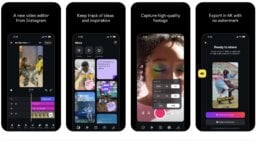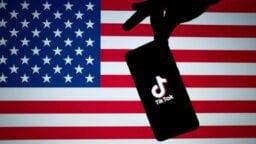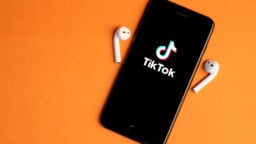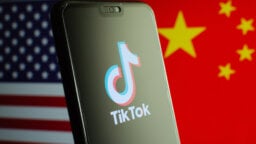The French government has become the latest to order an immediate ban the use of TikTok on government devices, citing cybersecurity risks.
The government order, announced by Civil Service Minister Stanislas Guerini on Friday (March 24), follows similar moves by the US, Canada, the UK and the European Commission in recent weeks.
Guerini’s office said the ban applies to “recreational apps,” but it has singled out TikTok in the announcement. The Associated Press and the AFP reported that the ban will also include Twitter, Instagram, Netflix, gaming apps like Candy Crush, as well as dating apps.
“Recreational applications do not have the levels of cybersecurity and protection of sufficient data to be deployed on administrative equipment,” Guerini said in a statement.
These apps can pose risks to data protection among government administrations and public officials, Guerini added.
“Recreational applications do not have the levels of cybersecurity and protection of sufficient data to be deployed on administrative equipment.”
Stanislas Guerini, French Civil Service Minister
While Guerini said the ban constitutes a “crucial issue” for the ministry, the minister said exceptions may be given to certain government roles that use the apps for communication. Guerini posted the announcement of the government ban on Twitter.
Marketing research firm TheB2BHouse estimates that TikTok had 14.97 million users in France in 2022, and is expected to reach 17.58 million by 2026.
For TikTok, the ban in France marks a new challenge for the ByteDance-owned app as US lawmakers move forward with legislation for an outright ban of TikTok in the US.
“The House will be moving forward with legislation to protect Americans from the technological tentacles of the Chinese Communist Party,” said US House of Representatives Speaker Kevin McCarthy on Twitter Sunday.
It follows TikTok CEO Shou Zi Chew’s testimony before a US House Committee on Thursday where he was battered for about five hours over China’s influence over the platform and its effect on children’s mental health.
Chew told lawmakers that nearly half of the US population uses the app and a ban would “damage” the country’s economy.
We do not believe that a ban that hurts American small businesses, damages the country’s economy, silences the voices of over 150 million Americans, and reduces competition in an increasingly concentrated market is the solution to a solvable problem,” Chew said.
In response, US House Energy and Commerce Committee Chair Cathy McMorris Rodgers told Chew that the app “should be banned.”
“In fact, when you celebrate the 150 million American users on TikTok it emphasizes the urgency for Congress to act. That is 150 million Americans that [the Chinese Communist Party] can collect sensitive information on and control what we ultimately see, hear, and believe,” Rodgers said.
Rodgers added that TikTok parent ByteDance is currently under investigation by the Department of Justice for surveilling American journalists.
The ban, however, is facing opposition from some government officials like Rep. Alexandria Ocasio-Cortez, who recently debuted on TikTok, saying the bipartisan bill to ban TikTok in the US “doesn’t feel right to me.”
“I think it’s important to discuss how unprecedented of a move this would be. The United States has never before banned a social media company from existence, from operating in our borders. And this is an app that has over 150 million Americans on it,” Ocasio-Cortez said.
Apart from France and the US, a growing number of countries and government agencies have implemented measures against the use of TikTok including the UK, Canada, the European Union and New Zealand.
These governments have cited cybersecurity and data protection concerns, saying TikTok users are at risk of having their information including personal data and location transmitted to China for use by the Chinese military.
TikTok has repeatedly dismissed these allegations, saying the company is not owned by the Chinese government.
Chew noted last week that ByteDance is 60% owned by global institutional investors including Blackrock, General Atlantic and Sequoia, while 20% is owned by the company’s founders, and about 20% are owned by employees including thousands of Americans.
Music Business Worldwide




